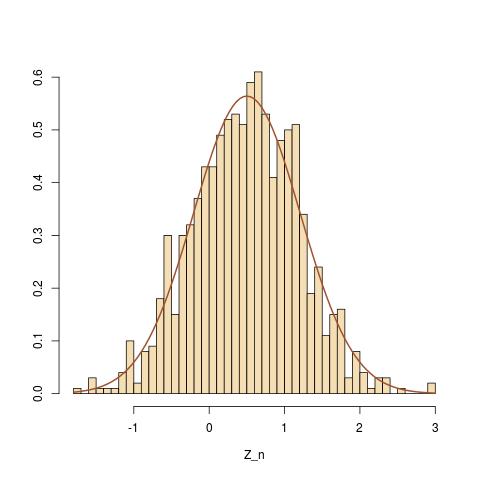You are quite close to solving the problem:
Using the representation $X_k=\sum_{j=1}^k Y_{kj}$ where $Y_{ij}\stackrel{\text{iid}}{\sim}\mathcal{P}(1)$, you have
$$\sum_{k=1}^n X_k= \sum_{k=1}^n\sum_{j=1}^k Y_{kj} = \sum_{u=1}^{n(n+1)/2} \xi_{u}$$where $\xi_u\stackrel{\text{iid}}{\sim}\mathcal{P}(1)$ $(u=1,\ldots,n(n+1)/2)$. Therefore, if you normalise the above sum, you get
$$\eqalign{\dfrac{\sum_{k=1}^n X_k-\mathbb{E}[\sum_{k=1}^n X_k]}{\text{var}(\sum_{k=1}^n X_k)^{1/2}}
&=\dfrac{\sum_{u=1}^{n(n+1)/2} \xi_{u}-\mathbb{E}[\sum_{u=1}^{n(n+1)/2} \xi_{u}]}{\text{var}(\sum_{u=1}^{n(n+1)/2} \xi_{u})^{1/2}}\\
&=\dfrac{\sum_{u=1}^{n(n+1)/2} \xi_{u}-\frac{n(n+1)}{2} }{(n(n+1)/2)^{1/2}}\\
&=\sqrt{2}\,\dfrac{\sum_{k=1}^n X_k-\frac{n^2}{2}-\frac{n}{2}}{n(1+n^{-1})^{1/2}}\\
&=\sqrt{2}\,\dfrac{\frac{1}{n}\sum_{k=1}^n \left[X_k-\frac{n^2}{2}\right]-\frac{1}{2}}{(1+n^{-1})^{1/2}}\\
&=\sqrt{2}\,\dfrac{Z_n-\frac{1}{2}}{(1+n^{-1})^{1/2}}\\
}$$
which should help you conclude. That the result holds can be checked by a quick R experiment, as illustrated by the following that compares an histogram of 10³ $Z_n$'s with the $\text{N}(1/2,1/2)$ density:

